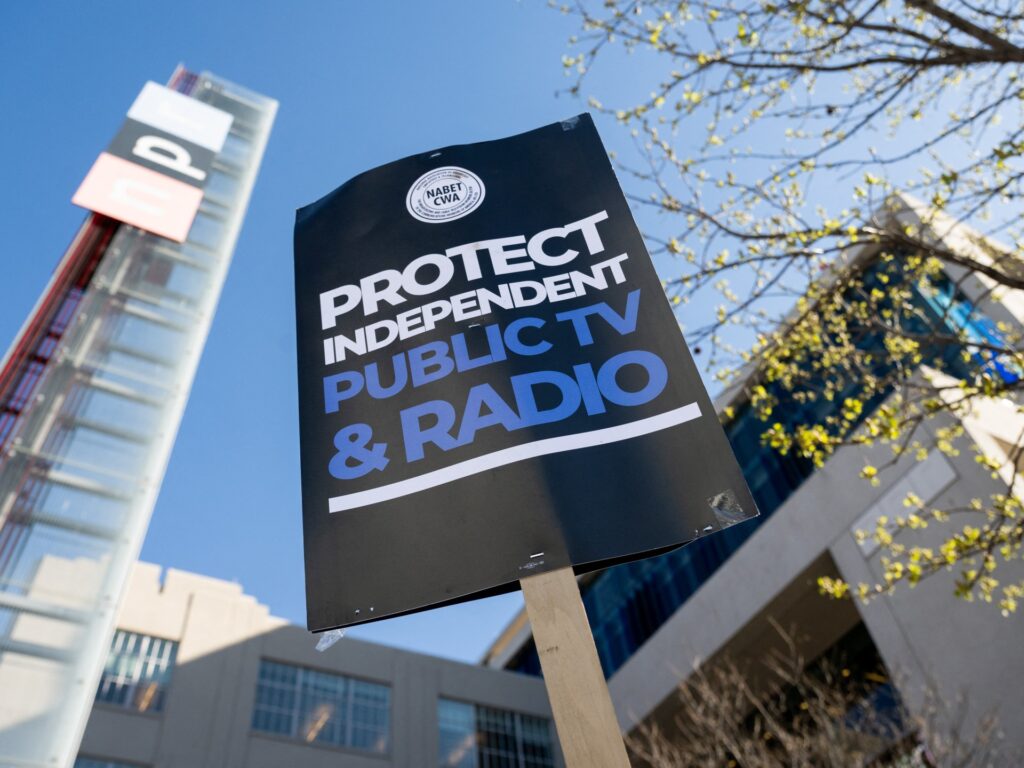The White House accuses media outlets of misusing taxpayer funds to disseminate ‘woke propaganda’ while concerns about media freedom grow.
President Donald Trump recently signed an executive order that cuts funding for two public broadcasters in the United States.
He issued the order on Thursday, stopping federal support for PBS and NPR, claiming that their reporting is biased and promotes “left-wing” propaganda.
This move is part of Trump’s ongoing effort to eliminate government funding for media organizations that he perceives as oppositional to his administration. This action follows a warning from Reporters Without Borders (RSF) about a significant decline in press freedom.
In a post on social media, the White House accused these outlets of taking millions from taxpayers “to disseminate radical, woke propaganda masquerading as ‘news’”.
Trump instructed the Corporation for Public Broadcasting (CPB)—the body that manages government funds for media—to “cancel all current direct funding as much as legally possible and… refuse… future funding”.
He also urged the CPB to eliminate any indirect sources of public funding for these news organizations, putting their fate at risk.
Reports suggest that CPB allocates approximately half a billion dollars per year to PBS and NPR, but they also depend significantly on private contributions.
The immediate impact of this order on the outlets is uncertain, as they are usually funded two years ahead by Congress to safeguard them from political pressures.
Last month, Paula Kerger, PBS’s CEO and president, expressed concerns that funding cuts would “disrupt the vital service” the channel provides.
Moreover, it has been reported that the White House has requested Congress to revoke funding for the CPB, which is a nonprofit organization established by Congress in 1967 to manage the federal contribution to public media.
‘Significant decline in press freedom’
As part of a wider initiative to reduce federal expenditure, Trump has cut hundreds of millions of dollars in financial support for artists, libraries, museums, and theaters since his presidency began in January. He has also threatened to withdraw federal research and education funding from colleges and universities.
The media sector has faced considerable scrutiny. In March, Trump aimed to dismantle the US Agency for Global Media, which oversees Voice of America and Radio Free Europe/Radio Liberty.
However, federal courts have pushed back against his administration, indicating that it is exceeding its authority by trying to restrict funds allocated by Congress.
Critics condemned the effort to close these media outlets, which operate in numerous countries with authoritarian regimes that stifle press freedom, labeling it a favor to US adversaries.
Nonetheless, concerns about media independence in the US have intensified since Trump’s return to the White House.
In its latest annual report, the media rights organization RSF warned of a “distinct decline in press freedom” during Trump’s presidency and highlighted the “unprecedented” challenges facing independent journalists globally.
In addition to threats of physical violence, RSF pointed out that “economic pressure” has emerged as a significant and “subtle threat” to journalism.


